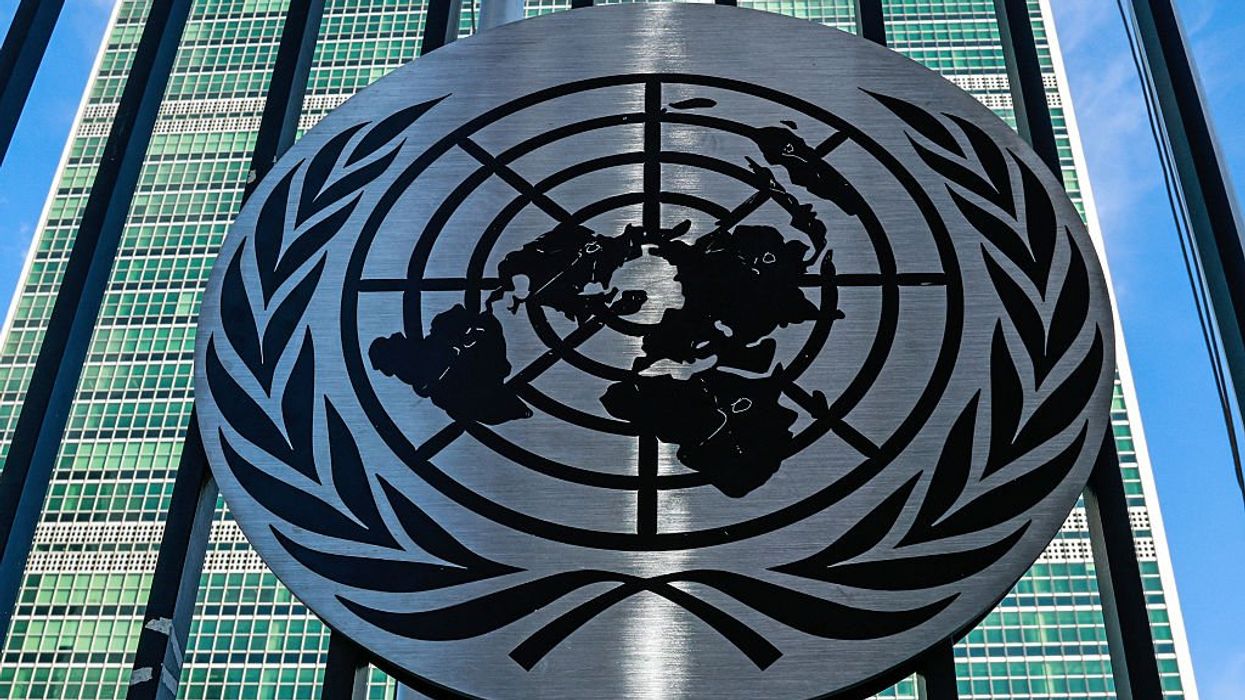
Photo by KENA BETANCUR/AFP via Getty Images

Arab nations cannot keep cashing Israeli trade checks while refusing to stand with Jerusalem against terror and UN recognition of Hamas.
We recently marked the fifth anniversary of the signing of the Abraham Accords, a historic diplomatic breakthrough that upended decades of conventional thinking about the Arab-Israeli conflict. The agreement was intended to transform the Middle East, rewarding realism over extremism and demonstrating that peace pays.
In many ways, it has succeeded. But now, five years in, we face a moment of clarity. As France and Saudi Arabia lead a call to recognize the Palestinian state, the accords need recalibration.
Arab states cannot ask for access to Israel’s markets, security expertise, technology, and military protection while staying silent as the international system moves to target the Jewish state.
On Sept. 15, 2020, the United Arab Emirates and Bahrain ended their boycott of Israel and established open relations. Morocco soon followed. Embassies opened. Flights took off between Tel Aviv and Dubai. And with that, the Middle East began to shift in a direction few thought possible.
Despite the trauma of the Oct. 7 massacre and the seven-front war against Israel that ensued, the accords have endured. Israeli tourists still visit Abu Dhabi and Manama. Business conferences continue. Flights remain regular. The economies of these Arab nations have benefited greatly from Israeli trade, technology, and innovation.
According to the Abraham Accords Peace Institute, bilateral trade between Israel and the UAE alone reached $3 billion in 2023. In Morocco, Israeli firms have invested in agriculture, water management, and cybersecurity. The economic dividends of peace are real and growing. Israel has helped create new pathways to prosperity across the region.
Moreover, Israel has also systematically dismantled regional threats — namely, Iranian proxy forces in Gaza, Syria, and Lebanon. It has rolled back Tehran’s nuclear capabilities through daring strikes aided by U.S. air power. It has kept Red Sea shipping lanes open by taking the fight directly to the Houthis. These actions make the region more stable for all.
Ironically — and tragically — Israel receives warnings from the very countries that have benefited from this new regional architecture. Back off against Hamas in Gaza. Don’t extend sovereignty in Judea and Samaria. Lay off Hamas leaders who are enjoying protection in Qatar. Don’t relocate displaced Gazans — or else.
The list of Arab red lines imposed on Israel keeps growing, always with the vague threat of harming the accords.
This is not the behavior of true allies. It is the posture of parties who want to enjoy the benefits of peace without shouldering the responsibilities of partnership.
As the United Nations General Assembly convenes, the imbalance is coming to a head. A growing international pressure is mounting to unilaterally recognize a Palestinian state. Hamas, a group committed to Israel’s destruction, would celebrate such a move as a political victory.
The message would be unmistakable: You murder Jews, you get a state.
If the Abraham Accords mean anything beyond commercial convenience and one-way security guarantees, participating Muslim countries must not allow this to happen. The same governments that send delegations to Tel Aviv and sign investment deals in high tech must now reject any declaration of Palestinian statehood that rewards violence and bypasses good-faith negotiation.
That is a simple request. Oppose any resolution that turns mass murder into political capital. Refuse to legitimize a governing entity that hides behind Arab civilians while murdering Israeli babies. Deny cover to Hamas leaders enjoying luxury Doha hotels while Israeli hostages waste away in Gazan dungeons.
A partnership, by definition, is not a one-way street. It should include joint efforts to dismantle the machinery of terror, not vague calls for “restraint” every time Israel is attacked. Iran, Hamas, Hezbollah, the Muslim Brotherhood, and the Houthis threaten the entire Middle East. Israel has done the hard work of confronting these threats directly.
RELATED: Why does the mainstream media keep blaming Israel for Gaza’s humanitarian crisis?

Over the last half-decade, Israel and the Abraham Accords nations have redefined what was possible in the Middle East. They created a new model for cooperation based on mutual interests rather than historical grievances. But Israel has faced repeated admonitions from its new allies about what it must not do to defend itself.
That is not sustainable. It is not even moral.
Arab states cannot ask for access to Israel’s markets, security expertise, technology, and military protection while staying silent as the international system moves to target the Jewish state.
The Abraham Accords are still the best way forward. Five years later, the time has come to define what true partnership means. That starts with refusing to reward terror and standing up, publicly and clearly, at the United Nations this week.
Joan Leslie Mcgill